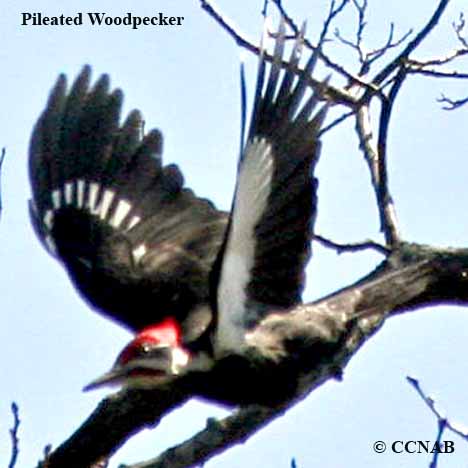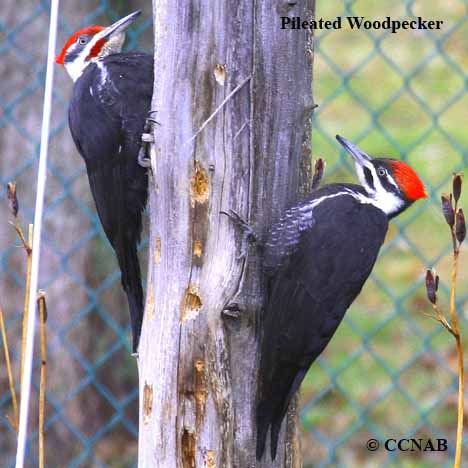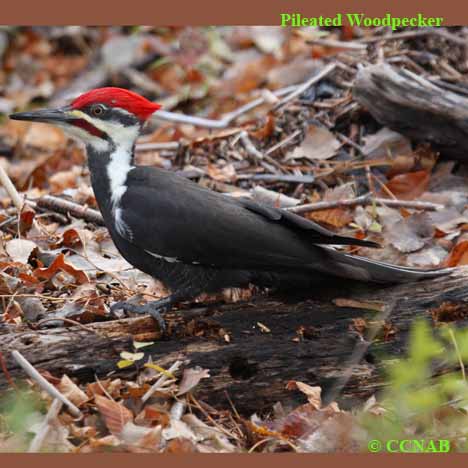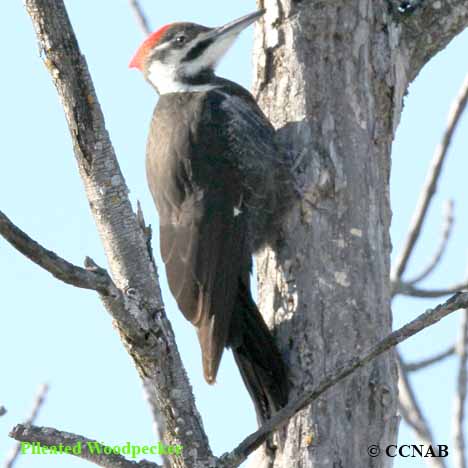North American Bird Search Box
This search box can be used to find bird species using bird's english, french or latin name, or to identify bird by its 4 letter Alpha Code
Field Guide for all the Birds of North America
Pileated Woodpecker
4 Letter (english names) Alpha Code: PIWO (1)
Grand Pic
Dryocopus pileatus
Information, images and range maps on over 1,000 birds of North America, including sub-species, vagrants, introduced birds and possibilities
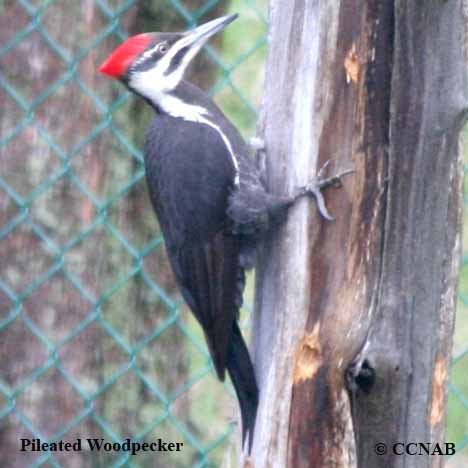
Species: The Pileated Woodpecker (Dryocopus pileatus) is the size of a crow and is the largest member of the woodpecker family seen in North America. Even today, this woodpecker is being mistaken for the extinct, Ivory-billed Woodpecker, which is similar in looks and size.
Distinctions: This large woodpecker, 16 to 17 inches in size, both sexes have large red crests, mostly black and white bodies, white stripes down their necks. The male can be distinguished from the female by its red malar (mustache) and full red crest. The female has a black malar and a partial red crest. Both sexes have large white areas in the regions of their underwing coverts and axillaries, which are visible when they are seen flying.
Voice: Loud rapid cries, something you would expect to hear in the tropics. Loud rapid tapping on a tree trunk or limb which the male does to attract a mate.
Nesting: Four white eggs per clutch. The Pileated Woodpecker nest in tree cavities. Both sexes make the holes in tree trunks.
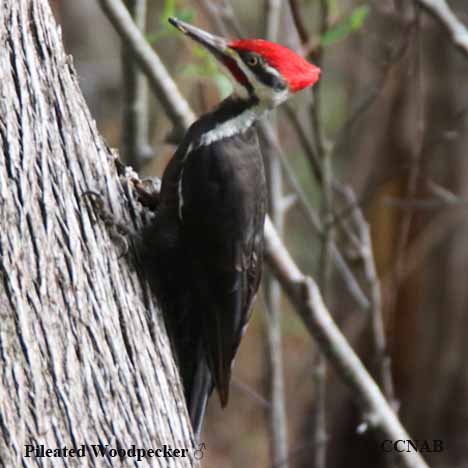
Life, Habitat and Pictures of North American Woodpeckers
| B L | W W | W | Family | Latin Name |
|---|---|---|---|---|
| 16.5" 42cm | 29" 73.7cm | 10oz 283.5g | Picidae | Dryocopus pileatus |
North American Birds Videos
- Click here - Male
- Click here - Male
North American Bird Calls
- Click here
- Click here
- Click here
- Click here
- Summer
- Year Around
- Winter
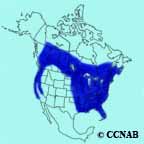
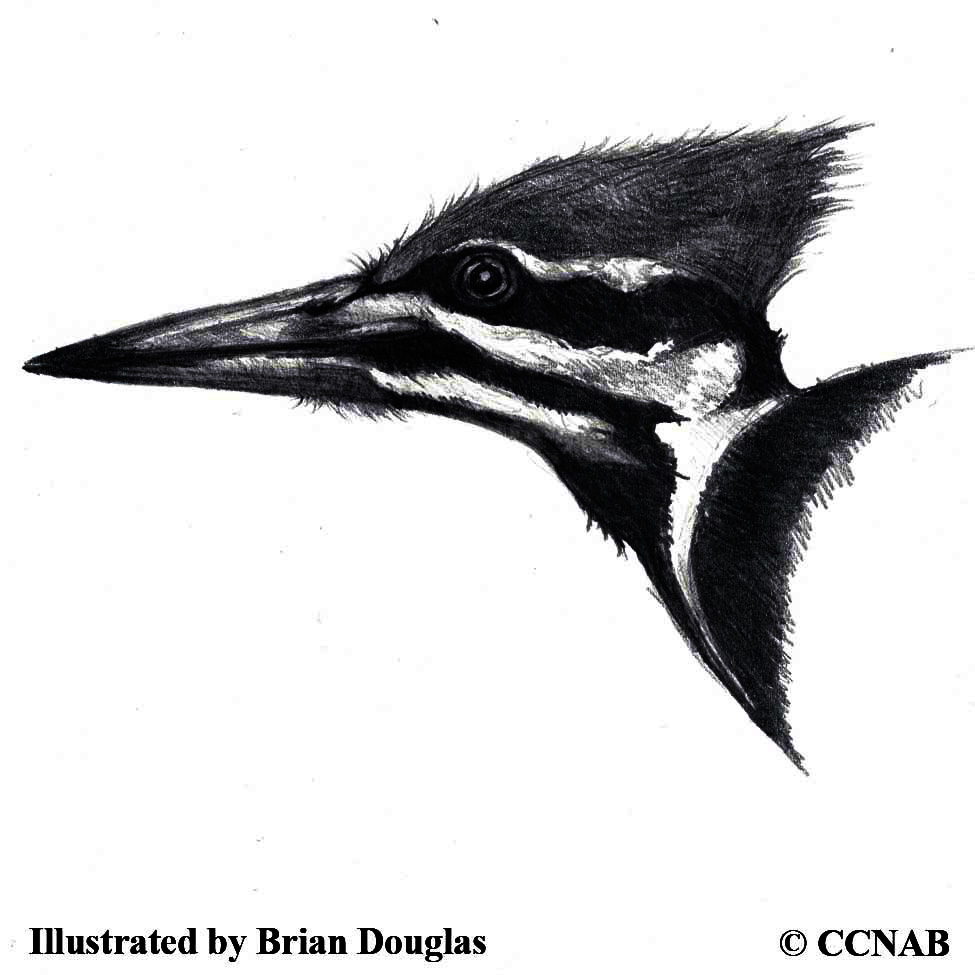
Distribution: Non-migratory and common across North America, seen from Nova Scotia to northern British Columbia, down into California, up into the central states, down into Texas to the Atlantic coast and back up into Canada. This large woodpecker has adapted well, making a comeback from the early 1900's. The Pileated Woodpecker can even be seen in wooded areas inside towns and cities.
Reference to Other Bird Site:
ABA - American Birding Association This site represents an organization that maintains official records of all birds species that have been proven to have been seen inside the perimeters of the North American Continent and the surrounding bodies of water. Regular revised versions are posted to keep the bird list current at all times. This is the list used by all serious birders over their lifetime. You may be aware of the movie called the "Big Year". It was with this list that all the competing birders used in an attempt to set a new record as to how many bird species that could be seen by an individual birder in one calendar year.
